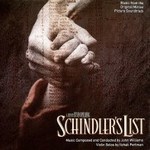When John Williams received his 29th Academy Award nomination for Schindler's List , he had already won Oscars for Fiddler on the Roof, Jaws, Star Wars, and E.T.: The Extra Terrestrial. He had long been an automatic nominee, but as Hollywood's most honored working composer it was generally believed that it would take an extraordinary addition to his legacy for the Academy to award Williams a fifth trophy. Schindler's List would prove to be that extraordinary work — and not just because of the enormous historical and social import of the film and it's subject, though those factors could only have strengthened Williams appeal to Academy voters. Schindler's List feels like his attempt at a magnum opus. Though even simpler in its melodies and themes than some of his famous sweeping popcorn movie scores, it carries the ambition of a major symphonic composition. This is especially true in the segments that are graced with exquisitely rich and evocative violin solos by world famous violinist Itzhak Perlman. Perlman's masterful performances give Williams' compositions an authenticity and grounding that offsets the composer's predilection for sentimentality and bombast. "Restraint" was the word that appeared most frequently in discussions of Steven Spielberg's Holocaust epic. The critical consensus was that the director had managed to depict the horrors of the greatest tragedy in world history without giving in to his customary urges to tug transparently at the heart strings of his audiences. In truth, Spielberg was only able to exercise restraint through the first two and a half hours of the film; he ended up throwing it out the window in the maudlin conclusion. Williams, too, is guilty of indulging in emotional excess. Which isn't surprising when you consider that his music has always been one of Spielberg's most effective heart-tugging tools. Like the film itself, his score is best at its simplest, deriving its emotional power from the events it depicts and bearing in mind that audiences do not need help from filmmakers and composers in order to be emotionally affected by the Holocaust.













